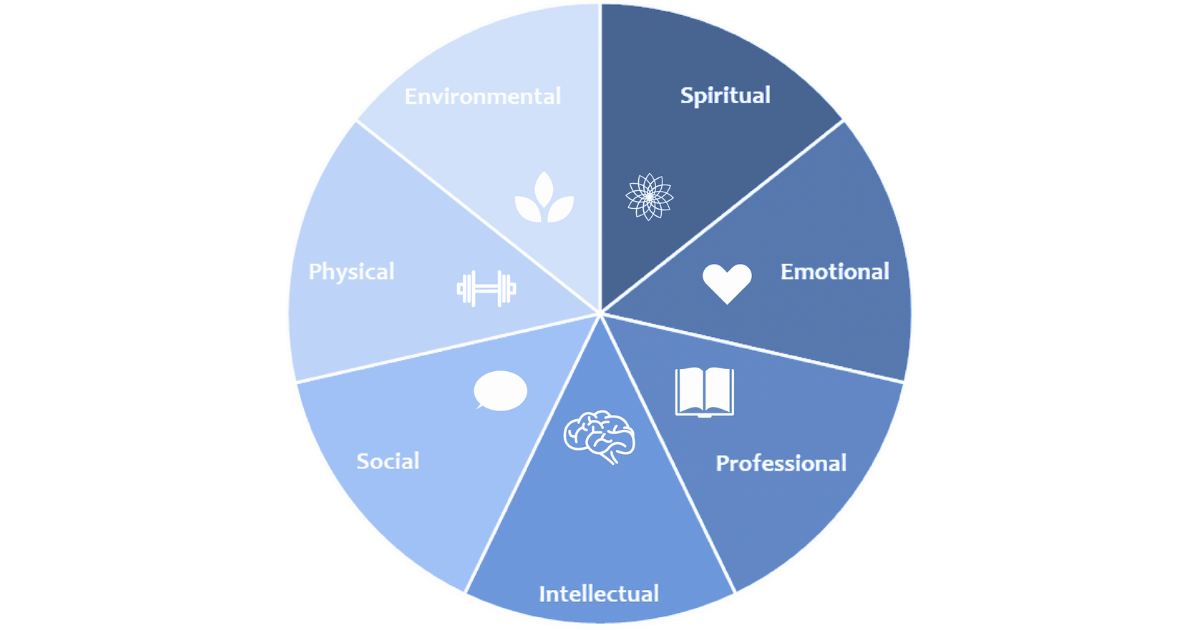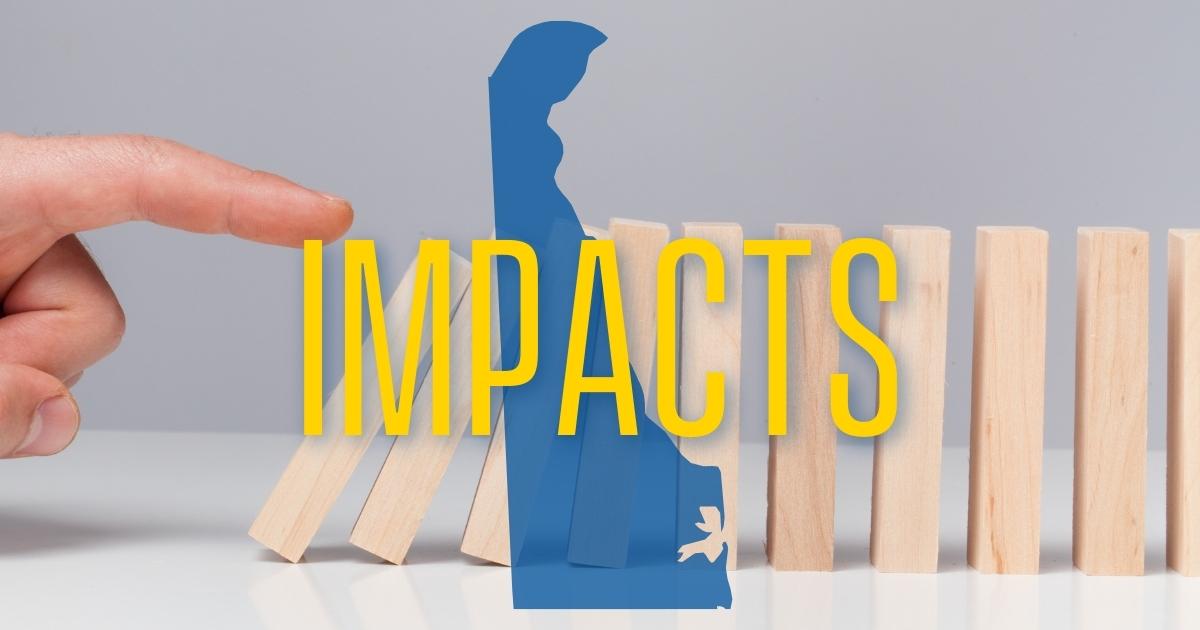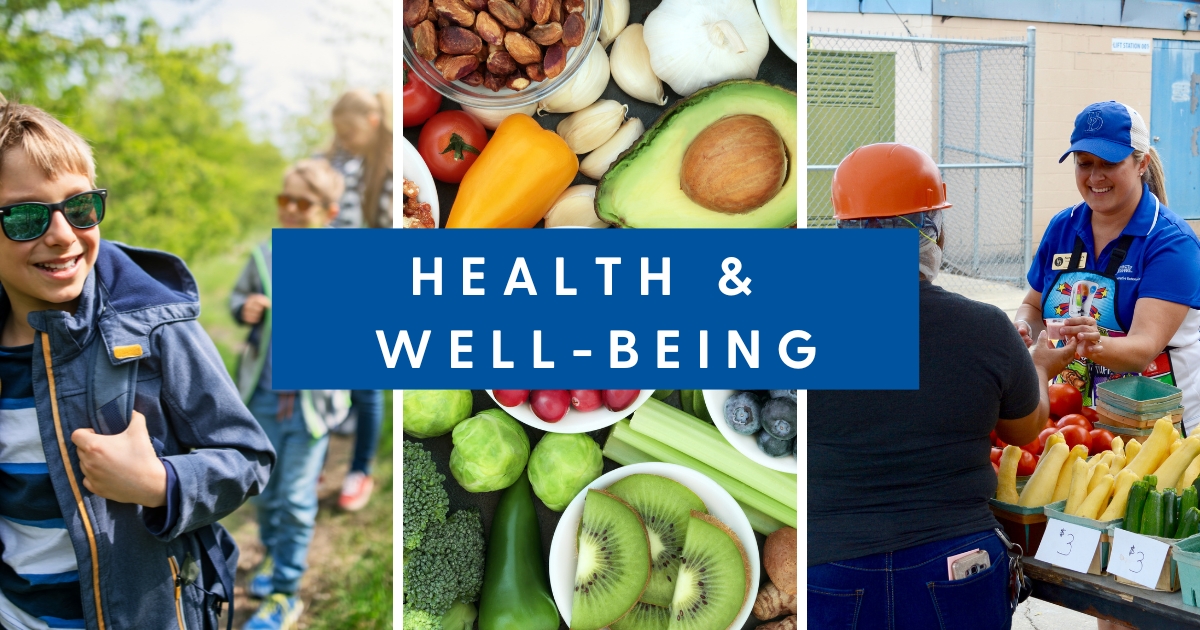
Nutrition, Food Safety & Wellness
Health is a combination of the choices we make and the policy, systems and environments that impact our communities. Working with partners, Extension is helping to enhance both community and individual health.

Health & Well-being outreach is critical
According to the World Health Organization, health is a complete state of complete physical, mental and social well-being and not merely the absence of disease or infirmity.
Well-being is an intersection of multiple independent dimensions. Each person has their own unique needs in each dimension, and not all need to be equal - not equally distributed per person, nor equal from one person to another.
What is a Wellness Wheel?
A Wellness Wheel is a tool and visual guide that helps one assess all aspects of their wellness. There are many wellness wheel varieties, highlighting different areas of wellness, most commonly known as the 7 Dimensions of Wellness. Wellness is a continuous and active process of achieving an optimal state of health, where an individual becomes aware of or makes choices towards a more whole-self lifestyle. Using a Wellness Wheel helps us assess this continuous and active process for ourselves!

Request a Program
Interested in a program for your organization? Click the link below to learn more about the programs that we offer in all of our areas and complete the form to request an Extension health and well-being program for your organization.
Our Goals
The goal of the University of Delaware’s Cooperative Extension Health and Well-Being work is to address the multiple dimensions of wellness by providing individuals with opportunities to learn skills and knowledge to manage their own health and work with community partners to develop policies, systems and environments that allow residents to achieve optimal health.
Our work aims to achieve the following goals:
Provide learning opportunities that increase skills and understanding of healthy behaviors
Improve access to opportunities for healthy living through environments that make the healthy choice the easy choice
Support community coalitions working together to create a culture of health
We work in the areas of:
Healthy Lifestyles (Physical Activity and Nutrition)
Financial Health
Mental Well-being
Food Safety
Health Literacy
Nutrition
We offer on-time programming and series programming based on the needs of your organization.
One-Time Programming:
Dazzling and Delicious Salads
What's up in the spring? What is a salad anyway? Does it have to include lettuce? No! This session will help you learn how to build light healthy homemade salads from spring produce and share some yummy dressing ideas.
Table for One (or Two), Making Mealtime Special
This session provides information about how to plan and prepare healthy meals when cooking for yourself and one other.
Meal Time in Less Time
This workshop will help you develop strategies to offer healthful meals for your family in less time. Being busy is no excuse for poor nutrition.
First State Farm to MyPlate (for Adults)
Join us for a brief introduction to Delaware agriculture and the University of Delaware Research Farm, followed by interesting facts and recipe ideas surrounding local Delaware grown fruits and vegetables.
Series-Based Programs:
Youth:
Up for the Challenge
Teen Cuisine
Summer Camp
Adults:
Around the Table
Eating Smart Moving More
Impacting Delaware

Explore the impacts that our programs have in Delaware!
Each year, our impact statements summarize the accomplishments of UD Extensions' efforts. Then, selected impact reports are featured on our First State Impacts webpage and at the national level through the National Institute of Food and Agriculture.
Upcoming Events
Health and Well-Being Programming

Nutrition

Mental Well-Being

Physical Activity

Healthy Recipes for you

Financial Health

Families & Relationships
Strong community support and leadership

Delaware Master Gardeners

Delaware Master Naturalists
Related Fact Sheets
Filter by Category
All Results
-
10 TIPS FOR PARENTS TO HELP THEIR CHILDREN AVOID TEEN PREGNANCY
The National Campaign to Prevent Teen Pregnancy offers these 10 tips for parents:
1. Be clear about your own sexual values and attitudes...
-
101 GROCERY & HOUSEHOLD & COST CUTTING TIPS
1. Transfer small amounts (sour cream, yogurt, etc.) to an appropriate size container. They last much longer.
2. Use rubber spatulas to clean out jars, bottles, bowls, etc...
-
5 MISTAKES TO AVOID WHEN PREPARING YOUR HOLIDAY TURKEY
Most of us buy our turkey frozen. Because turkeys are frozen with the neck and giblets packaged inside the turkey, it is necessary to defrost it before cooking. Three safe ways are available to defrost the bird.
- 1
- 2
- 3
- 4
- 5
- 6
- 7
- >>
























































































